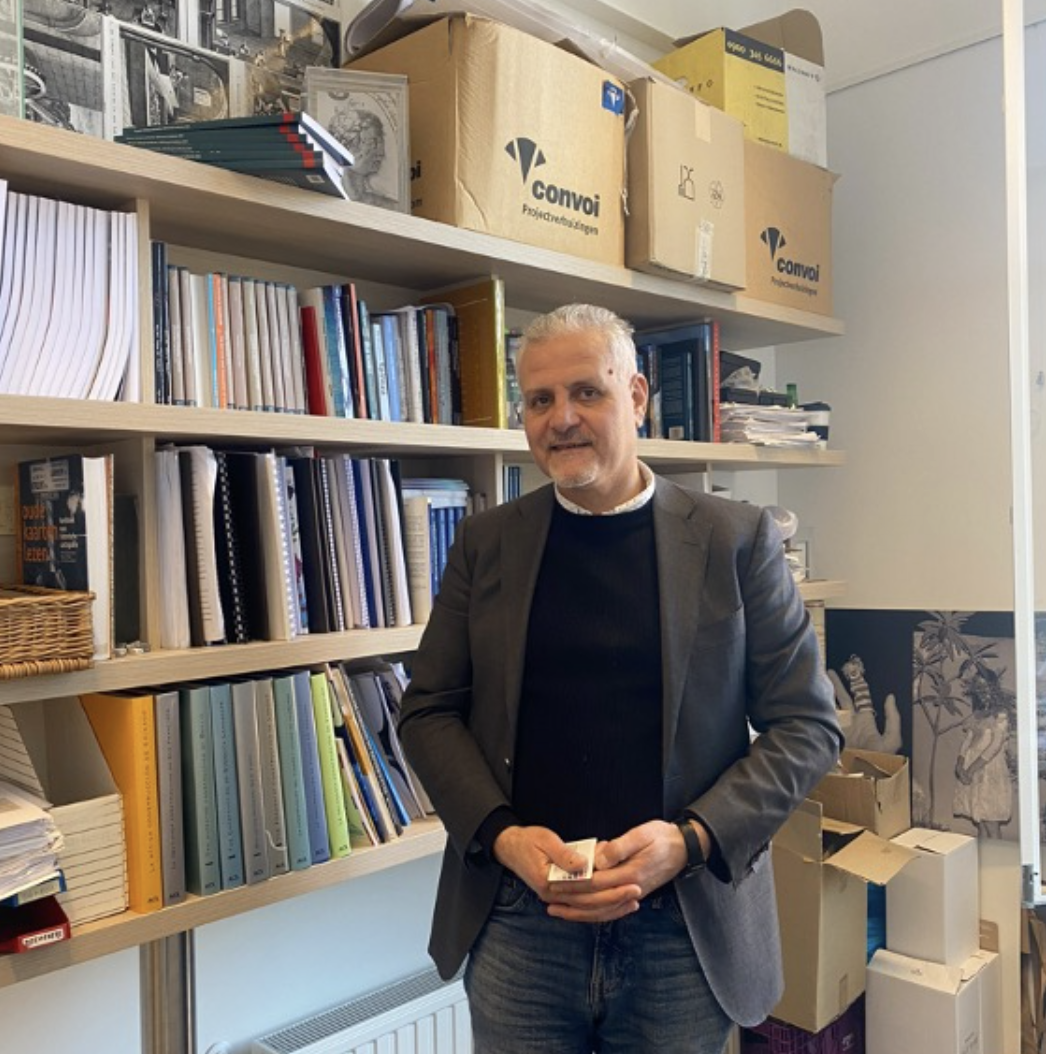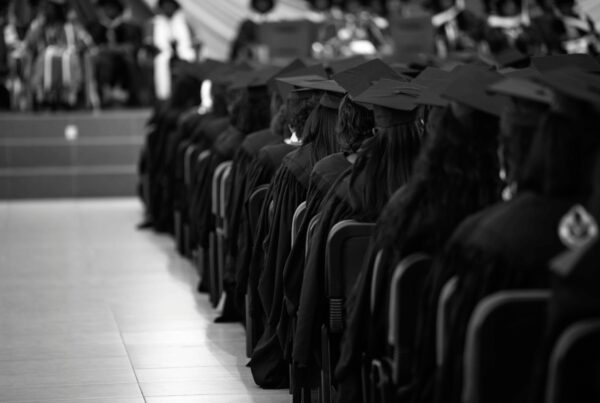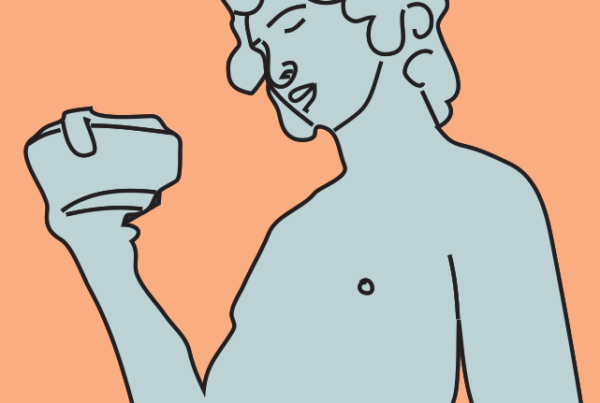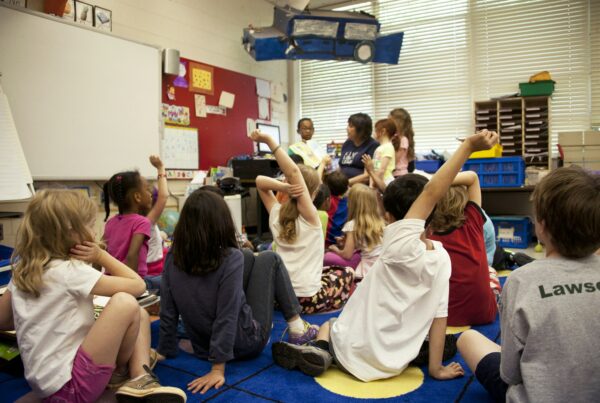

More than a month ago, the University of Amsterdam announced the opening of a humanitarian fund to support students and academics affected by the disaster in Gaza. Spiegeloog met with Professor Ihab Saloul, research director of the Amsterdam School for Heritage, Memory and Material Culture (AHM) at the University of Amsterdam, who proposed the idea of the fund.
Spiegeloog: Thank you for taking the time! The announcement stated that the UvA fund has two goals – one targeted at Israeli and Palestinian students in the Netherlands and another at academics in Gaza. Could you first outline how the fund can help UvA students?
Professor Ihab: The first goal of the fund was to start something at the University of Amsterdam that can support students from Palestinian and Israeli backgrounds whose studies are affected by the war in Gaza via study delays, financial insecurities etc. The fund aims to support students from the region regardless of their ethnicity or religion, primarily in a financial manner.
Spiegeloog: How exactly would that look like administratively?
Professor Ihab: The university is setting up and coordinating a whole administrative part for that procedure right now. Israeli and Palestinian students who are affected by the conflict can approach their student dean and get more information about the fund and the requirements.
Spiegeloog: What do these requirements look like?
Professor Ihab: Students need to prove that they come from the affected regions to prevent misuse of the fund. Additionally, students need to share documents that highlight a study delay, financial insecurities, and mental health struggles related to the conflict. The student deans and administrative office will consider the documents and decide whether the student will be qualified for financial help or other kinds of fellowship or support.
Spiegeloog: So, Palestinian and Israeli students that have been affected need to actively reach out?
Professor Ihab: Yes and no. The students need to reach out, but the UvA is also collecting students’ names from the affected regions and will get in contact if needed. This information will also be communicated in the next announcement which should be launched in the coming weeks.
Spiegeloog: So, am I right in assuming these students would need to fill in a form?
Professor Ihab: Yes, I think the students would need to fill in a form explaining their case and how their studies have been affected by the conflict. This will be followed up most likely with an interview and based on that students’ requests will either be assessed as valid or invalid. As far as I know, the university is trying to keep the procedure as simple as possible. The contact person or student deans responsible for managing the fund will be announced in the coming weeks.
Spiegeloog: Not only does the fund try to support Palestinian and Israeli students at the UvA but also academics in Gaza. What exactly would that look like?
Professor Ihab: The actualisation of the second goal is a bit more complicated and split into two parts, one more long-term than the other. For the first part, we initially aimed to bring bachelor’s and master’s students to the UvA to compensate them for the destruction and lack of study. However, this process is very difficult when we look at visa and admission requirements. And how could people get access to these papers when the infrastructure has been destroyed? So, we are now looking in the first phase at supporting researchers or staff members for whom documentation and admission requirements are less complicated. Ideally, we would host these researchers at UvA so they can finish their research projects.
Spiegeloog: And how would the second, more long-term part be actualised?
Professor Ihab: This long-term step includes trying to donate and contribute to rebuilding the academic infrastructure in Gaza. We want to ensure that (higher) education is possible for future generations as well, but we are also aware that this is a huge project, which requires sufficient funds and is more the government’s responsibility than the responsibility of an individual academic institution.
Spiegeloog: Since this is such a big project, could you imagine contacting other Dutch universities?
Professor Ihab: We first want to establish the fund at the UvA but once we have figured out the administrative part, we would be very open to the idea of forming “coalitions” with other Dutch universities. The more students, academics or staff members that can be supported, the better. As academics, this is our mission – to follow the academic practice, to ensure that academia is accessible to everyone in the world and to take professional and academic responsibility.
Spiegeloog: Now that we have talked about the purpose of the fund, I am curious, how long has this been an idea until it became reality?
Professor Ihab: It has not been long, the idea was a reaction to what is happening in Gaza. For me, the most hurtful thing about this whole tragedy is the destruction of schools and universities. This conflict has been going on for so long but for Palestinians, education is a lifeline and the only way to make a future and become somebody. So, if someone destroys schools and academic institutions, that is basically the end of society. When I saw images of my bombed school, I was afraid of what a lack of education would mean for the next generations in the affected regions but also how this would impact future generations in the Netherlands. As an academic, it is my professional responsibility to ensure that education is accessible – here, in Gaza, and elsewhere.
Spiegeloog: Thank you for earnestly following your professional responsibility! We are slowly coming to the end of our interview. Do you maybe have anything you would like to say to Israeli and Palestinian students who feel powerless with everything that is happening?
Professor Ihab: Don’t lose optimism and keep going. I always say this, what’s currently happening isn’t strange to our histories and emphasises the need to stand for our academic mission both as individuals and institutions. It’s also important to understand that this conflict is not about religion but about a political ideology. This is why I think it’s important to talk, discuss and debate as long as we keep the standards we uphold in our classrooms. If we do that, I don’t see why students should not express their views and have the freedom for a healthy debate. With mutual respect and passion, we can share our views and have a meaningful dialogue. So, it’s good that students stay critical, and as academic staff, it is our mission to support our students and help them speak up and out.

More than a month ago, the University of Amsterdam announced the opening of a humanitarian fund to support students and academics affected by the disaster in Gaza. Spiegeloog met with Professor Ihab Saloul, research director of the Amsterdam School for Heritage, Memory and Material Culture (AHM) at the University of Amsterdam, who proposed the idea of the fund.
Spiegeloog: Thank you for taking the time! The announcement stated that the UvA fund has two goals – one targeted at Israeli and Palestinian students in the Netherlands and another at academics in Gaza. Could you first outline how the fund can help UvA students?
Professor Ihab: The first goal of the fund was to start something at the University of Amsterdam that can support students from Palestinian and Israeli backgrounds whose studies are affected by the war in Gaza via study delays, financial insecurities etc. The fund aims to support students from the region regardless of their ethnicity or religion, primarily in a financial manner.
Spiegeloog: How exactly would that look like administratively?
Professor Ihab: The university is setting up and coordinating a whole administrative part for that procedure right now. Israeli and Palestinian students who are affected by the conflict can approach their student dean and get more information about the fund and the requirements.
Spiegeloog: What do these requirements look like?
Professor Ihab: Students need to prove that they come from the affected regions to prevent misuse of the fund. Additionally, students need to share documents that highlight a study delay, financial insecurities, and mental health struggles related to the conflict. The student deans and administrative office will consider the documents and decide whether the student will be qualified for financial help or other kinds of fellowship or support.
Spiegeloog: So, Palestinian and Israeli students that have been affected need to actively reach out?
Professor Ihab: Yes and no. The students need to reach out, but the UvA is also collecting students’ names from the affected regions and will get in contact if needed. This information will also be communicated in the next announcement which should be launched in the coming weeks.
Spiegeloog: So, am I right in assuming these students would need to fill in a form?
Professor Ihab: Yes, I think the students would need to fill in a form explaining their case and how their studies have been affected by the conflict. This will be followed up most likely with an interview and based on that students’ requests will either be assessed as valid or invalid. As far as I know, the university is trying to keep the procedure as simple as possible. The contact person or student deans responsible for managing the fund will be announced in the coming weeks.
Spiegeloog: Not only does the fund try to support Palestinian and Israeli students at the UvA but also academics in Gaza. What exactly would that look like?
Professor Ihab: The actualisation of the second goal is a bit more complicated and split into two parts, one more long-term than the other. For the first part, we initially aimed to bring bachelor’s and master’s students to the UvA to compensate them for the destruction and lack of study. However, this process is very difficult when we look at visa and admission requirements. And how could people get access to these papers when the infrastructure has been destroyed? So, we are now looking in the first phase at supporting researchers or staff members for whom documentation and admission requirements are less complicated. Ideally, we would host these researchers at UvA so they can finish their research projects.
Spiegeloog: And how would the second, more long-term part be actualised?
Professor Ihab: This long-term step includes trying to donate and contribute to rebuilding the academic infrastructure in Gaza. We want to ensure that (higher) education is possible for future generations as well, but we are also aware that this is a huge project, which requires sufficient funds and is more the government’s responsibility than the responsibility of an individual academic institution.
Spiegeloog: Since this is such a big project, could you imagine contacting other Dutch universities?
Professor Ihab: We first want to establish the fund at the UvA but once we have figured out the administrative part, we would be very open to the idea of forming “coalitions” with other Dutch universities. The more students, academics or staff members that can be supported, the better. As academics, this is our mission – to follow the academic practice, to ensure that academia is accessible to everyone in the world and to take professional and academic responsibility.
Spiegeloog: Now that we have talked about the purpose of the fund, I am curious, how long has this been an idea until it became reality?
Professor Ihab: It has not been long, the idea was a reaction to what is happening in Gaza. For me, the most hurtful thing about this whole tragedy is the destruction of schools and universities. This conflict has been going on for so long but for Palestinians, education is a lifeline and the only way to make a future and become somebody. So, if someone destroys schools and academic institutions, that is basically the end of society. When I saw images of my bombed school, I was afraid of what a lack of education would mean for the next generations in the affected regions but also how this would impact future generations in the Netherlands. As an academic, it is my professional responsibility to ensure that education is accessible – here, in Gaza, and elsewhere.
Spiegeloog: Thank you for earnestly following your professional responsibility! We are slowly coming to the end of our interview. Do you maybe have anything you would like to say to Israeli and Palestinian students who feel powerless with everything that is happening?
Professor Ihab: Don’t lose optimism and keep going. I always say this, what’s currently happening isn’t strange to our histories and emphasises the need to stand for our academic mission both as individuals and institutions. It’s also important to understand that this conflict is not about religion but about a political ideology. This is why I think it’s important to talk, discuss and debate as long as we keep the standards we uphold in our classrooms. If we do that, I don’t see why students should not express their views and have the freedom for a healthy debate. With mutual respect and passion, we can share our views and have a meaningful dialogue. So, it’s good that students stay critical, and as academic staff, it is our mission to support our students and help them speak up and out.



